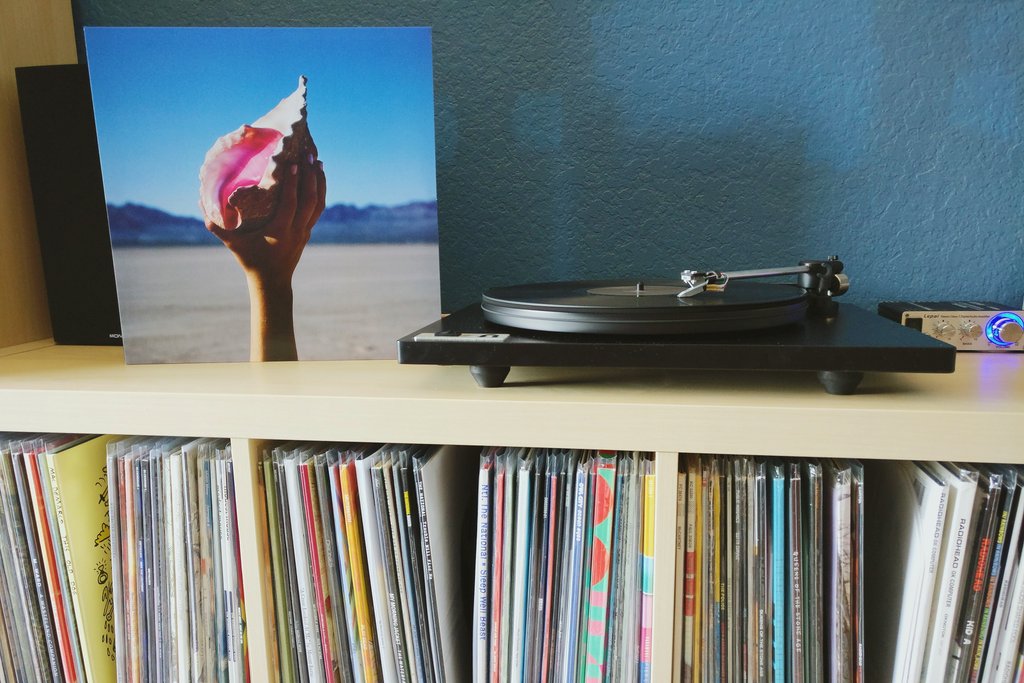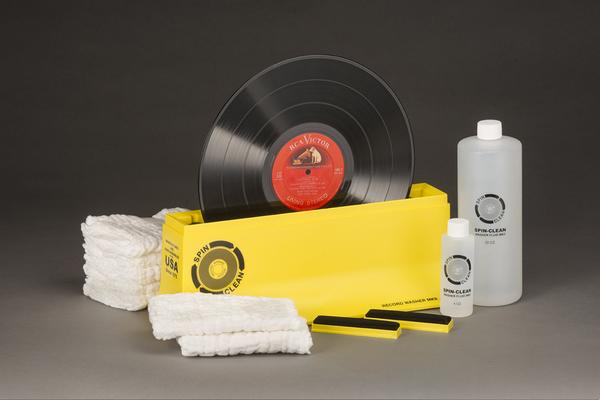Cleaning & caring for your vinyl records
We love easy and inexpensive ways to make your music sound better. Properly caring for your records is just about the easiest thing you can do to ensure superb sound quality for years to come.
It's not exactly rocket science. There are a few key rules, which we've summed up in this handy table:
Do
|
Don't
|
|
|
|
|
|
|
|
|
|
Following these guidelines will save you from the headaches of surface noise, warped vinyl, and damaged grooves. Let's dive a little deeper:
Storing your records
Always store your records upright - like books on a shelf. Stacking records on top of each other will put pressure on them, which can cause warping over time. Properly storing your records upright will prevent warping and will better protect your record jackets from damage and premature wear.

Controlling temperature & humidity
Records warp when exposed to high heat. Frequent and/or extreme temperature variations can also contribute to warping. We recommend storing your records between 60-75°F to prevent this. Colder temperatures are OK for records in long-term storage, but anything below freezing will cause vinyl to become brittle and prone to damage during handling.
High humidity can lead to mold growth on record sleeves. When possible, store your records in a room with 30-50% relative humidity. Lower humidity won't warp your records, but can lead to excessive static during play.
We also recommend keeping your records away from direct sunlight, which can fade artwork and contribute to heat-related warping.
Bottom line - store your records indoors where you have some level of climate control. Storing your records outside of the recommended temperature and humidity ranges (within reason) probably won't do significant harm in the short-term. Just get your records out of your garage, attic, pool shed, etc. They deserve better!
Record cleaning
An anti-static record brush is an essential part of any record collection. In the 20-odd minutes it takes to play one side of an album, your record can pick up plenty of dust. That's why we recommend using an anti-static brush to clean your records before and after (yes, we're a bit obsessive) each play.
The more dust that comes between your stylus and your records, the more you'll hear surface noise (those pesky pops and hisses). Playing dirty or dusty records can also prematurely wear down or even damage your grooves.
If you don’t have an anti-static record brush, you can use a clean microfiber cloth instead. Avoid using anything dirty, abrasive, or prone to shedding such as paper towels, dish rags, or clothing.
Record handling
We'll keep this simple - when you handle your records, be sure to only touch the outer edges and label. Unless you’re a DJ, there’s no reason to ever touch the grooves of your records. You might think your hands are clean, but touching your grooves will inevitably leave oil behind. Dust will stick to the oil residue, causing stubborn surface noise. Plus, there's no reason to risk accidentally scratching your records with your fingernails.
Cleaning your stylus
Even with diligent record cleaning, dust and debris can accumulate on your stylus. This might not seem like a big deal, but a dirty stylus will cause surface noise and can even lead to tracking problems like skipping. We recommend regularly cleaning your stylus using one of the methods described in our stylus cleaning guide.
Extra points: deep cleaning
Do you have dirty old records? You're not alone. Consider trying a wet cleaner that will remove the dust, dirt, and gunk trapped deep in your grooves (the stuff that your anti-static record brush can't reach). The Spin Clean Record Washer is a simple and popular cleaning system for more heavy-duty jobs.

When you finish cleaning, make sure that the record is completely dry before playing it. Leftover cleaning solution can coat the stylus and leave behind a residue that’s tough to remove. Plus, any leftover solution or gunk can make your records sound absolutely terrible. For these reasons, we only recommend wet cleaning systems when dry cleaning methods have failed.